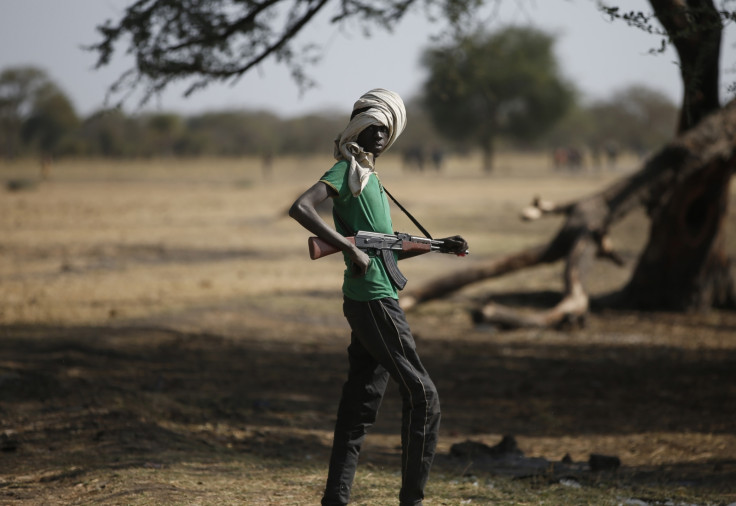South Sudan Unable to Meet Oil Debts as Civil War Wrecks Economy

South Sudan's government is struggling to remain afloat as months of civil strife have all but halted oil production.
The government has struggled to service its debts to oil companies, which already stretch in to the hundreds of millions, while it plans to borrow a further $1bn from oil firms in the current fiscal year.
Against the backdrop of dramatically decreased oil output, which is currently around a third of the level seen before the conflict erupted in December, its revenues are forecast to come in at around a quarter of the amount it plans to borrow.
Oil fields became a battle ground early on in the conflict, which began when the current rebel leader Riek Machar was ousted as deputy President. Machar has said oil fields are "legitimate targets" for his forces and that funds raised from oil sales should be placed in an independent coffer.
For its part, South Sudan's government has said independent monitoring of oil revenues would be a violation of the country's sovereignty. A government spokesman has also said it has not purchased arms since the conflict began.
"We are not the protectorate of anyone," Ateny Wek Ateny said, as quoted by Reuters news agency. "We have the right to buy arms, but we haven't bought anything since December," he said, contradicting rebel accusations that weapons shipments had arrived in recent months.
China was revealed to have transferred $38m worth of arms to the South Sudanese government in June.
Consisting of missiles, grenade launchers, machine guns and ammunition, the shipment was ordered before July, the defence minister said at the time.
Oil exports have slowed to a trickle and oil companies are said to be losing their patience with the world's newest nation.
The most lucrative oilfields in the country, in Upper Nile and Unity states, are at the centre of the conflict, while new exploration has also been put on hold at other potential sites.
Money raised through oil sales accounts for 95% of the government's total revenue.
The economic crisis has meant the government has been unable to pay some of its military, prompting fears of a military mutiny.
The US government has warned its citizens against travelling to the country as a result.
"We are having challenges raising money to pay some soldiers because we are not producing enough oil," said Ateny Wek Ateny.
Human Rights Abuses
Meanwhile, a leading rights watchdog has accused both sides in the conflict of committing atrocities that amount to war crimes.
Human Rights Watch issued a damning report, documenting widespread killing of civilians based on their ethnicity and mass destruction of civilian property.
Some of the cases could amount to crimes against humanity, the watchdog said.
Rebels loyal to Riek Machar largely hail from the Nuer community. President Salva Kiir, an ethnic Nuer, draws most of his support from his own ethnic base.
© Copyright IBTimes 2025. All rights reserved.






















